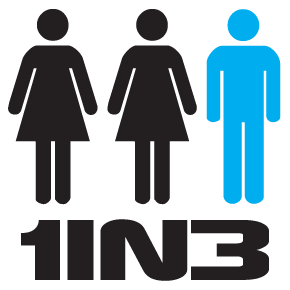Men's hidden problem
When most people think about domestic violence the picture is usually one of a man assaulting his-wife or partner. But evidence is emerging of a growing trend of men across the Hawkesbury being emotionally or physically assaulted by their partners or close family members.
Since the start of the year, Windsor police have been offering men who are victims of family violence a referral to Hawkesbury District Health Service (HDHS) for counselling.
Men's health coordinator at HDHS Stephen Lillie said it was unknown how many men decline the offer of referral for counselling but that the service-had initially received about 10 referrals.
"We now receive at least one new referral every week," he said. "We expect that we will see an increase in the number of men seeking assistance as community awareness of this issue increases."
When police refer someone to HDHS, they make it clear that help is an option, and was not compulsory.
Once HDHS receives the referral, a male counsellor contacts the man to discuss how they may be able to support him.
Stephen Lillie points out that NSW Health doesn't keep records of domestic violence against men, though they do for women. He said he was the only full time, men's health co-ordinator in NSW.
According to figures from the Australian Bureau of Statistics Personal Safety Survey in 2006 - the most recent and the largest survey of violence in Australia - 30 per cent of victims of current partner violence since the age of 15 were male, and 24 per cent of victims of previous partner violence since the age of 15 were male.
Stephen Lillie said men often found it harder than women to talk about their problems.
"Some of society's ideas about men get in the way and make it harder for men to come forward when they have been a victim of family violence," he said. "Men sometimes feel ashamed that they have experienced violence."
Mr Lillie said society has conditioned men to be seen as strong, and in control.
"If not, they are judged either by themselves or others as being less of a man," he said. "This leads to shame,-doubt, lack of recognition and can affect many aspects of the man's life."
Violence, abuse and neglect counsellor at HDHS, Patrick Smith, said an important fact he'd learnt over the past 10 years was that "anyone can be a victim of violence, regardless of age, gender, whether they are rich or poor, strong or weak".
"Where men find themselves experiencing violence, please understand that you are not alone and that there are people and services that can help," he said.
If men would like help or support they are welcome to contact the men's health co-coordinator at HDHS on 45B0 5714 or email menshealth@chcs.com.au.


